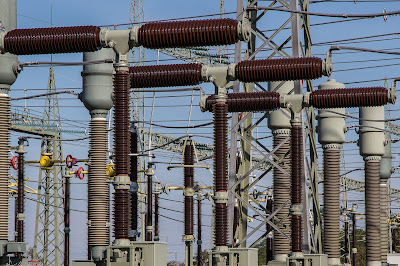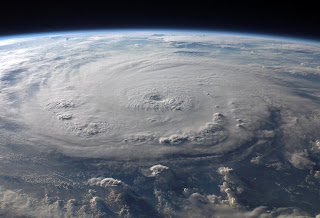Global Warming
Global warming, or global
warming, refers to the climate change of the earth’s atmosphere and ocean due
to the greenhouse effect over a period of time, which is one of the tragedies
of the commons, and the effect it causes is called Global warming effect.
In 2013, the fifth assessment
report of the Intergovernmental Panel on Climate Change concluded that “human
impact is most likely the main cause of the warming observed since the mid-20th
century.”
Human impacts include the
emission of greenhouse gases such as carbon dioxide, methane, and nitrous
oxide. Given that human activities play a major role in global warming, this
phenomenon is sometimes referred to as "man-made global warming" or
"man-made climate change." ". The summary of the climate model
predictions in the report pointed out that in the 21st century, according to
greenhouse gas emissions, the global surface temperature is likely to rise
further by 0.3-1.7 ° C to 2.6-4.8 ° C.These findings have been recognized by
the Academy of Sciences in major developed countries, and no scientific
institution with national or international status has disputed this.
There will be regional
differences in future climate change and related impacts. The ongoing and
expected impacts include sea level rise, precipitation changes and desert
expansion in the subtropical region. It is expected that the warming of the
land will be more serious than that of the ocean in the future. The most
serious will be the Arctic, and glaciers, frozen soil and sea ice will continue
to shrink. Changes in other areas include more frequent extreme weather, such
as heat waves, droughts, mountain fires, floods, snow storms, ocean
acidification, and large-scale species extinctions due to temperature changes.
Significant impacts on humans include the food security crisis caused by crop
reductions and rising sea levels that have forced people to abandon some
densely populated areas.
The society’s response to global
warming includes mitigating changes by cutting emissions, adapting to its
impact, and possible future climate projects. The ultimate goal is to prevent
dangerous man-made climate change.The parties agree that substantial emission
reductions are necessary, and global warming should be limited Within 2.0 ° C
relative to the pre-industrial revolution, strived to be controlled within 1.5
° C. At the same time, some scientists also questioned the goal of 2 degrees
Celsius.
Public concern about global
warming is also increasing. A 2015 Pew Research Center report showed that the
median proportion of global respondents who recognized “climate change is a
very serious problem” was 54%. The regional differences among respondents are
obvious. The United States and mainland China (also the two regions with the
largest carbon dioxide emissions) are the least worried.
Between 1906 and 2005, the global
average temperature of the atmosphere close to the ground rose by 0.74 degrees
Celsius. Generally speaking, the scientific community found that the rate of
observable climate change in the past 50 years was double that of the past 100
years, so it is inferred that the climate change during this period was driven
by human activities.
History
According to instrument records,
the global land and ocean temperatures rose by 0.75 degrees Celsius relative to
the period from 1860 to 1900. Since 1979, land temperature has risen twice as
fast as ocean temperature (land temperature has increased by 0.25 degrees
Celsius, while ocean temperature has increased by 0.13 degrees Celsius).
According to satellite temperature detection, the temperature of the
troposphere rises by 0.12 to 0.22 degrees Celsius every ten years. In the one
or two thousand years before 1850, although there was a warm period in the
middle Ages and the Little Ice Age, the public believed that the global
temperature was relatively stable.
According to the research report
of the NASA Goddard Institute of Space Research, since the widespread use of
measuring instruments in the 1800s, 2005 is the second warmest year since the
earth has a temperature record, compared with the annual average surface
temperature record of 1998 0.06 degrees Celsius lower. The World Meteorological
Organization and the British Climate Research Unit have similar estimates, and
once expected 2005 to be the second warmest year after 1998.
There are only some temperature
records in modern human history. These records come from different places, with
different accuracy and reliability. It was only in 1860 that there was a record
of global temperature instruments. It is believed that the record of that year
was rarely affected by the urban heat island effect. From the long-term
prospects shown in the multi-party records in the recent millennium, the
relevant discussions and differences can be seen in the temperature records of
the past 1000 years. The process of climate change in the last 50 years is very
clear, and it depends on detailed temperature records. By 1979, humans began to
use satellite temperature measurements to measure the temperature of the
troposphere.
More Information Please Visit
Please Subscribe My Youtube Channel
https://www.youtube.com/channel/UCn0iC-SAjNWh4_P8PqeUlyg?view_as=subscriber
My INSTAGRAM
https://www.instagram.com/asimali1101/
My Facebook Page
https://www.facebook.com/Pakistani-Made-Things-1504088989819688
My Twitter













Comments
Post a Comment